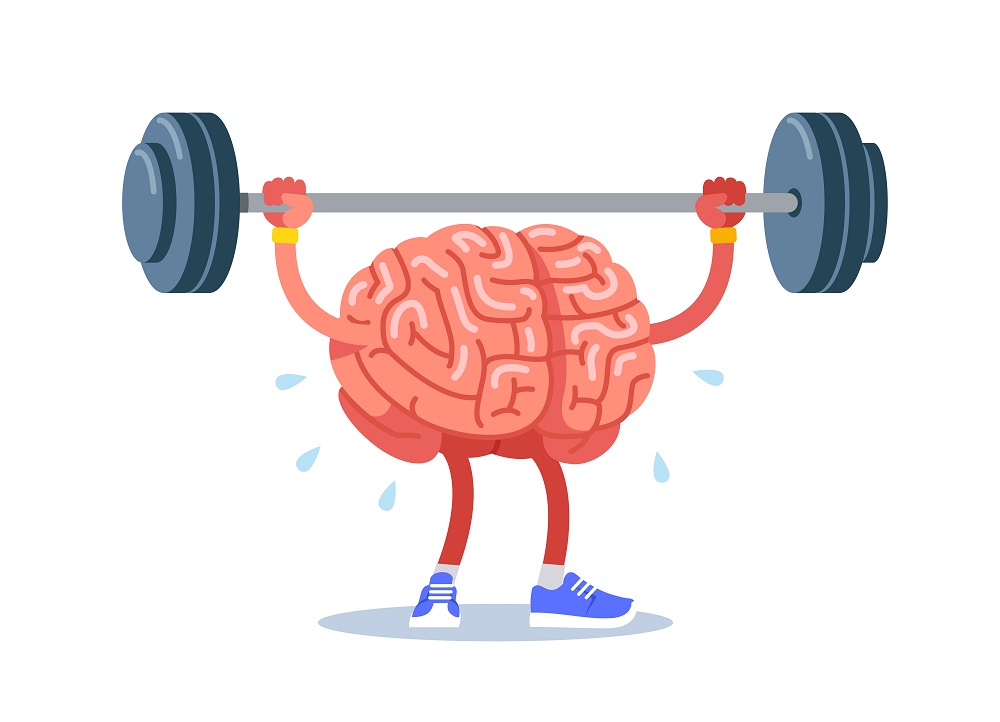Your brain’s health and vitality play a crucial role in developing a robust memory. Whether you’re a student cramming for finals, a professional striving to stay mentally sharp, or a senior seeking to enhance your cognitive abilities, numerous approaches can boost your memory and mental performance.
Despite the popular notion that “you can’t teach an old dog new tricks,” research indicates that the brain possesses a remarkable ability to adapt and transform itself. The human brain is an incredibly complex and adaptable organ. It is capable of learning, adapting, and changing throughout our lifetimes, which means that we have the power to enhance our mental abilities and memory at any age. While genetics and other factors play a role in how our brains function, there are many things that we can do to improve our cognitive abilities and maintain healthy brain function.

- Workout

To optimize your cognitive abilities and memory retention, it’s important to keep your brain stimulated and engaged. As you progress through life, your brain develops millions of neural pathways that aid in the rapid processing and recall of information, making familiar tasks effortless. However, relying solely on these pathways can restrict your brain’s growth and hinder your ability to process new information.
The brain is similar to a muscle in that it requires regular exercise to maintain optimal performance. The more you challenge your brain, the more it will adapt and improve its processing and memory capabilities. However, not all activities are created equal, and the most effective brain exercises are those that require you to develop new neural pathways and break out of your routine.
In summary, to improve your memory and cognitive function, you should focus on engaging in activities that challenge your brain and force it to adapt to new situations. By doing so, you can strengthen your brain’s neural pathways and maintain optimal brain function throughout your life.
- Physical Exercise:

Physical exercise provides numerous benefits for brain health. It increases blood flow to the brain, delivering vital oxygen and nutrients, and reducing the risk of memory-related disorders such as dementia and Alzheimer’s disease. Additionally, exercise helps to promote the production of helpful brain chemicals while reducing the levels of stress hormones in the body.
Perhaps most importantly, physical exercise plays a significant role in neuroplasticity, the brain’s ability to reorganize itself by forming new neural connections. By engaging in regular physical activity, you can stimulate new neuronal activity and enhance the brain’s growth factors, leading to improved cognitive function and memory retention.
So, whether it’s a brisk walk, a yoga class, or weight training, incorporating physical exercise into your routine is essential for optimal brain health. By doing so, you can keep your brain sharp and functioning at its best throughout your life.
- Sleep:
 Getting enough high-quality sleep is crucial for optimal brain health and overall well-being. Sleep deprivation can have a significant impact on memory, creativity, problem-solving abilities, and critical thinking skills. Studies show that over 95% of adults need between 7.5 to 9 hours of sleep per night to avoid sleep deprivation and maintain cognitive abilities. But sleep is not only important for cognitive function – it’s also critical for learning and memory consolidation. The most significant memory-enhancing activity occurs during the deepest stages of sleep, making it essential to prioritize a good night’s sleep.
Getting enough high-quality sleep is crucial for optimal brain health and overall well-being. Sleep deprivation can have a significant impact on memory, creativity, problem-solving abilities, and critical thinking skills. Studies show that over 95% of adults need between 7.5 to 9 hours of sleep per night to avoid sleep deprivation and maintain cognitive abilities. But sleep is not only important for cognitive function – it’s also critical for learning and memory consolidation. The most significant memory-enhancing activity occurs during the deepest stages of sleep, making it essential to prioritize a good night’s sleep.
Establishing a consistent sleep schedule is key to promoting optimal sleep. Going to bed and waking up at the same time every day can help regulate your body’s natural sleep-wake cycle and improve overall sleep quality. To further enhance your sleep, it’s important to avoid screens for at least an hour before bedtime, as blue light emitted by electronic devices can disrupt the production of the sleep hormone melatonin and stimulate wakefulness. Limiting caffeine intake can also be helpful, as it can interfere with sleep for those who are sensitive to its effects.
By prioritizing sleep and making simple changes to your sleep routine, you can improve memory, creativity, problem-solving skills, and overall brain health. So make sure you’re getting enough high-quality sleep each night to ensure your brain is functioning at its best!
There are numerous memory enhancement methods that are advantageous for a person’s general health and wellbeing. For instance, mindfulness meditation can help people feel less stressed and may also help them remember things better. Even small changes to daily routines, such as incorporating memory-enhancing exercises, can make a significant difference in cognitive health. By taking a proactive approach to memory care, individuals can protect their brains from memory loss and maintain optimal cognitive function throughout their lives.